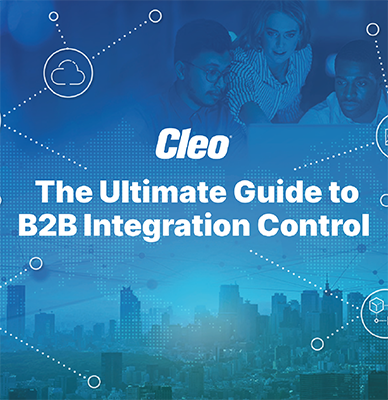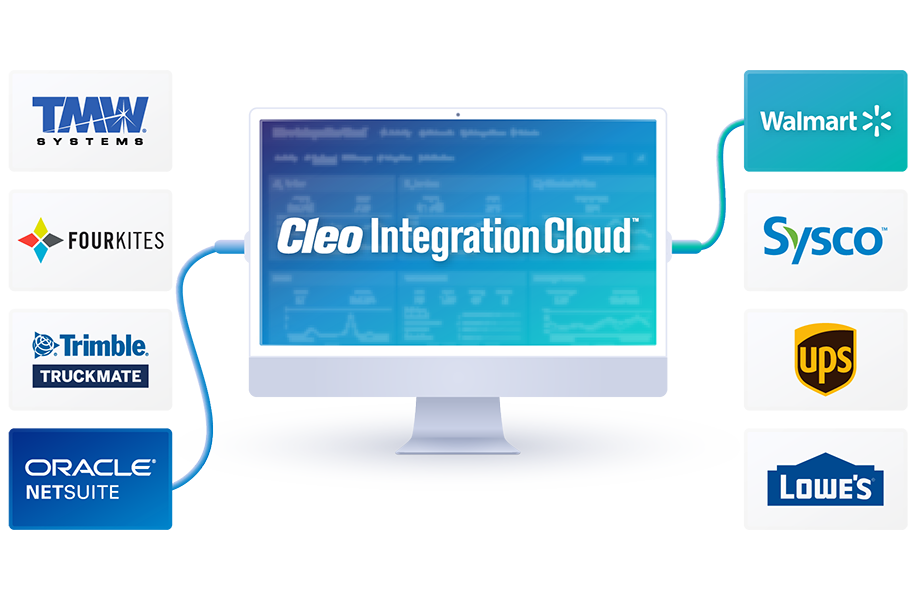Blog: Say ‘Yes’ to New Business with an Enterprise Integration Platform

Let’s face it, in the enterprise, saying “yes” feels a lot better than saying “no,” doesn’t it? You don’t want to be the company that has to tell its customers that your enterprise integration platform cannot support a specific communication protocol or handle its data format requirements.
What exactly does saying “yes” mean, to today’s enterprises? It means your business has the technology and processes in place for when a customer or another business wants to buy from you or work with you. Such flexibility means your company:
- Can make more money: Enabling your customers and trading partners will only lead to expanded opportunities to do business and more business revenue.
- Is easier to do business with: Onboarding customers and trading partners has never been easier when you have a single, centralized platform to take care of the heavy lifting for you.
- Will improve its reputation and grow: Instead of having to manually onboard customers and trading partners, you can enable more business opportunities, establishing and growing your brand as a leader in your industry.
So, what does it take for a business to be in the enviable position to say yes to changing customer mandates or potential customers’ requirements? The answer is enterprise integration technology that supports three main concepts: data transformation, multiple communications protocols, and pre-built application connectors.
Better Partner Onboarding
One of the biggest obstacles companies face when they sign on new business is onboarding, or the configure processes required to exchange data, facilitate payment, and support the relationship.
Onboarding a customer or a trading partner entails the ability to accept and handle any type of data format. Companies usually achieve this with manual scripting, or they turn to data transformation tools to reduce the cost, complexity, and time it takes to automate partner onboarding processes and execute routine data exchanges. Any-to-any data transformation tools use a single data map template, which is sourced from existing integrations, so large volumes of B2B data are quickly converted to meet target source format and data integration requirements.
O’Rourke Sales Company, a Midwest-based fulfillment outlet founded in 1965, had a document problem that required data transformation. O’Rourke’s IT team were manually converting 500 documents daily, with a limited amount of visibility into nearly 1,000 daily file transfers, a time-consuming and inefficient process. By deploying an integration platform equipped with advanced data transformation capabilities, O’Rourke was able to automate the transformation process and better integrate data flows, streamline its B2B processes, and improve customer service.
Multi-Protocol Support
Often, companies are unable to adequately support new trading partners with multiple protocols without investing in a costly piece of software for each new communication channel. Spending additional money and resources simply to bring on and support one trading partner isn’t sustainable over the long haul. A single integration platform allows you to accept any trading partner’s data request because it comes loaded with a library of pre-built connectors to all major trading hubs, and preloaded and configured to support all the advanced protocols you might need to support.
Take Distributel, a telecommunications company that used a vendor’s AS2 protocol, but unfortunately, that vendor did not support updated Canadian Radio-television and Telecommunications Commission standards, which mandated SHA-2 encryption. Enter Cleo, which is certified in every Drummond Group SHA-2 test since it was optioned in 2012. Cleo was able to not only support advanced AS2, but enabled Distributel to consolidate multiple data movement systems and integrate back-end technology.
Pre-Built Application Connectors
The third way to take advantage of solutions in order to truly say “yes” to trading partners and customers, or in this case, applications, is by leveraging pre-built application connectors. Cloud and other business applications, such as the ERPs and CRMs that run your customer relationships, generally have their own proprietary data format built in, but a prebuilt connector takes the configuration legwork out of the application setup.
A pre-built application connector delivers integration agility, ability, and adaptability that you simply cannot get from a build-your-own or API-based integration method. Additionally, instead of saddling your business with the integration maintenance and upkeep, a provider like Cleo, will take care of it. So, the speed to value is quick, its cost is minimal, and you no longer need a dedicated, on-site skill requirement.
Instead of taking two or even three weeks to configure an application, using one of these connectors takes as little as two hours upfront and just 16 hours to orchestrate even the most complex business process on the backside. Using this approach, companies can get the application running in less than a day, and it’s one of the quickest, most cost-friendly ways you can onboard a new application and further position your business to support new integration requirements.
Here’s How to Accept All the New Business
No matter the industry or the digital data needs, Cleo delivers the best integration platform for organizations that are losing customers – and money – because you have to say no so much more often than you want to.
Lipari Foods uses Cleo to create a central hub for electronic data processing, no matter what protocol its trading partners or suppliers use.
“The ability to say ‘yes’ to my business partners for virtually any connection is the most powerful thing Cleo gives me,” said Michael Hegarty, the director of ERP and CRM corporate strategy at Lipari Foods during Cleo Connect in October.
Saddle Creek Logistics Services, an asset-based third-party logistics provider, needed to support many customer protocols, such as AS2, FTP, SFTP, and HTTP, to name a few. But since its previous integration at the time was unable to integrate newer versions of Saddle Creek’s management system, it needed another solution.
“We can connect with customers and partners how they want to,” said Tom Loftus, director of data integration systems at Saddle Creek.
A modern enterprise integration platform enables you to say “yes” to your trading partners and customers because it comes stocked with pre-built application connectors, supports multiple protocols, and handles any type of data format. Cleo Integration Cloud does all these things and much more, accelerating ground-to-cloud and cloud-to-cloud processes that easily integrate cloud applications and connect to cloud-based storage and platforms.
If your business is tired of saying “no,” request a demo from Cleo and start saying “yes.”

About Cleo

Watch a Demo

Comprehensive Guide to Gaining B2B Control

Duraflame Case Study
